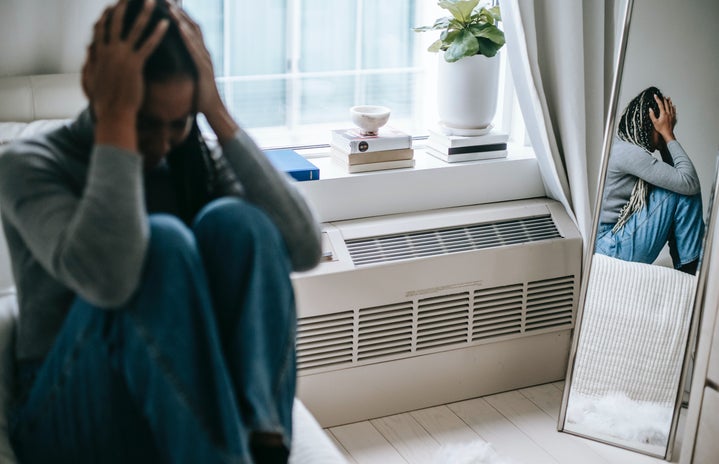Sometimes making the most of every day takes everything out of you.
Students are taught that college is supposed to be the best four years of their lives. This means that you must make every moment count. Any random event could be the story you tell your kids, so seize every chance there is! While this mentality can be positive in the sense that it encourages people to explore activities outside of their comfort zone and expand their circle, it can quickly turn toxic when it is constant and leaves no time to rest.
The fear of missing out, or FOMO, has always affected me, but it became worse when I entered college. When I was a freshman, I felt like I had to do everything. Every day felt like a sleep-away camp where my friends and I could do whatever we wanted, whenever we wanted. Every day was filled with so much excitement because there were so many options. I could go to the library and do my homework or I could see what my friends were doing instead. Plus, this was the time when everyone was meeting everyone and I didn’t want to miss the opportunity to meet my possible future bridesmaid because I was studying or doing something in my room alone.
This thinking led to the constant feeling like I should be doing more than I was. I always felt like I had to be with someone or doing something “memorable”. This especially applied to going out. Suddenly, going out on weekends leaked into the weekdays, and studying at the library turned into “I can do it later.” The need to constantly be doing something or seeing someone began to have a detrimental effect on my well-being.
I began staying up way too late to do homework I should’ve done three days earlier but didn’t because I agreed to go get food rather than study. I told myself that it was okay that I did poorly on this test because I would do better on the next. I would consistently get four to five hours of sleep because I would go to bed late just to wake up early and attempt to messily fill out whatever was supposed to be done for the class I had in an hour. Even when I would complain about not having enough time in the day, there was always that lingering “What if?” in the back of my mind. I didn’t want to be the person who missed out because I chose to stay in my dorm for the night.
When I forced myself to go out I would feel miserable beforehand, only to feel miserable there and then even more worse the morning after. I knew that this was not what I wanted to keep doing, but I felt stuck and overwhelmed by the pressure to have the time of my life while also trying to manage everything else.
I didn’t know what to do for the longest time, and now as a junior I feel like I am finally starting to have something sort of resembling a clue.
What helped me on this journey was finding people who didn’t feel the need to constantly do things. It sounds lame but it has been amazing. Having someone that can maintain a close relationship while not feeling the need to constantly go out or have something to do is so relaxing. Just sitting in the same room with other people doing their own separate thing can be reviving rather than draining. This doesn’t mean that you all can’t do things–it just means that there is no external or internal pressure to do more than what you feel is right. This person can be a friend, a significant other or really anyone that makes you happy.
Now, when I would stay in, I would change my approach to the situation. Instead of thinking that staying in meant wasting my night, I changed my mentality to, “I get to stay in.” Since I won’t be out late, I get to eat whatever I want in my comfiest clothes, do a facemask, watch a good movie and go to bed early. When I would stay in for the night to study, I told myself that maybe I’ll be rich in the future because of this. I thought of it as investing in myself, as corny as that sounds.
Take the time to purposefully prioritize yourself. Reconnect with activities you love doing but haven’t had the time to do. For me, I love turning on a comfort show and painting. It makes me feel better and it works as a great distraction.
What helped me the most to overcome FOMO was time. It took awhile for me to be okay enough to realize that I am comfortable just being with myself some nights. It also took time to develop relationships where I wouldn’t feel bad if I didn’t do something. Perhaps the biggest lesson I learned was realizing that most of the pressure was internal. I was in my own head thinking that my friends wouldn’t like me if I didn’t go out, or that I wouldn’t be as close to them because I didn’t do that one thing that one time.
So many people deal with FOMO, so if you’re afraid of missing out, join the club!
Overcoming FOMO is a process that takes time, effort and patience. There isn’t one right way to do it, and nobody can tell you what is best for you but you. The journey truly is your own.


